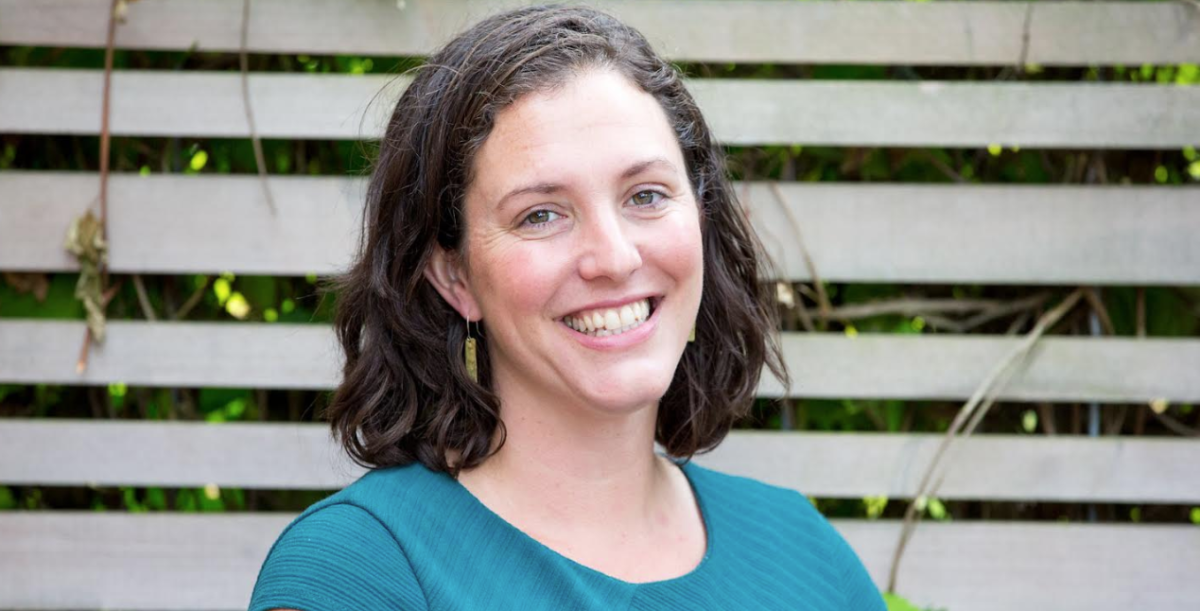Meg joined our team in November, with administrative and logistic roles including being a primary point of contact for program leaders from the moment they decide to bring their work here to the moment they arrive on site. In that window between, Meg helps work out all the kinks to make sure their experiences here are as wonderful as possible. Additionally, she keeps an eye on the facilities and helps monitor and schedule maintenance, upkeep, and outsourced repairs.
Meg comes to us with an amazing array of logistic, administrative, and interpersonal skills. She has prior experience as a postpartum doula supporting families with new babies, as a renewable energy engineer helping design solar energy systems and has a Masters in Sustainable Business from the Bainbridge Graduate Institute.. Until recently, Meg owned and operated a small specialty food business, Nut Hut Kitchen, making almond hummus. Although the product was beloved by customers in the region, Meg decided that growing the Nut Hut to a scale that would be financially sustainable for her and her employees wasn’t aligned with her vision. She was already winding down hummus production when she saw the job posting for an administrative and logistics coordinator. “The stars were aligned. It was the perfect timing for me,” she said.
“I’m so excited about the programs we have on deck for the next year. Folks come to the Whidbey Institute to have life-changing experiences, and I’m thrilled to get to be a part of creating the space for that.”
“I felt so excited when I read the job description, because it sounded like a position I could bring my whole self to,” Meg said. “It was asking for the skills I had developed while running my own business, and in previous jobs, and in my education choices along the way.” With two children enrolled at Whidbey Island Waldorf School, she’s spent hundreds of hours walking the trails and formed a deep and lasting connection to this place. “The idea that I could come and help steward this land and this work while feeling like my skills and talents would be of maximum service is almost too good to be true.”
Meg is as excited about our work and mission as she is about our land, and feels honored to play a role in supporting people’s experiences here. “I’m so excited about the programs we have on deck for the next year,” she said. “Folks come to the Whidbey Institute to have life-changing experiences, and I’m thrilled to get to be a part of creating the space for that.”
Meg’s daughter is a Waldorf second grader and her son is in the Golden Forest kindergarten program, which runs outdoors year-round on the Whidbey Institute land. “My daughter also started in the Golden Forest kindergarten,” Meg said. “After a few months, she began talking about all these places on these trails—Grandmother Rock, Fallen Alders, Storyhouse. I didn’t know what she was talking about, or if these were real or made up place names. When I let her lead me on the trails, I was amazed. She showed me these spots, knew every juncture and where every trail would lead.”
Meg’s reflections on her work experience center on gratitude and excitement. Kimi Hoover, who came out of retirement to train Meg in this role, worked alongside Meg for nearly a month. “The training has been phenomenal. Kimi’s institutional and relational knowledge have been such a gift. We’re not just making contracts, and not just hosting groups that sign up and pay. We’re nurturing real relationships and this time has been spent not only teaching me how to keep track of all the moving pieces, but also what makes each relationship unique and valuable.”
“The organization, and the systems that are in place, are inspirational,” Meg said. “To me, they point towards growth. We want to be able to host more groups and larger groups here, and I can see that the systems are in place to support that.” Meg is excited about what she sees shaping up on the 2019 calendar, and is curious about how we will evolve to serve our growing audience with our expanded lodging spaces.
“I’m very inspired by the work that the Whidbey Institute has done around equity principles, and in looking at how the space and the organization can be more inclusive,” she said. “I think the time is right for us—the Whidbey Institute and the larger community of Whidbey Island—to look at the roles that white supremacy, colonization, and patriarchy have played in shaping how we do things. Who’s being left out of the conversation because those systems are in place?” Meg shared that she’s curious whether folks who have been marginalized in the past feel more welcome here because of the small steps the Whidbey Institute has taken, and that she wants to help the organization take its next, bigger steps.
We are honored to have Meg’s partnership in the ongoing work of the Whidbey Institute, and encourage visitors to drop by our office for an introduction after the winter holidays.

